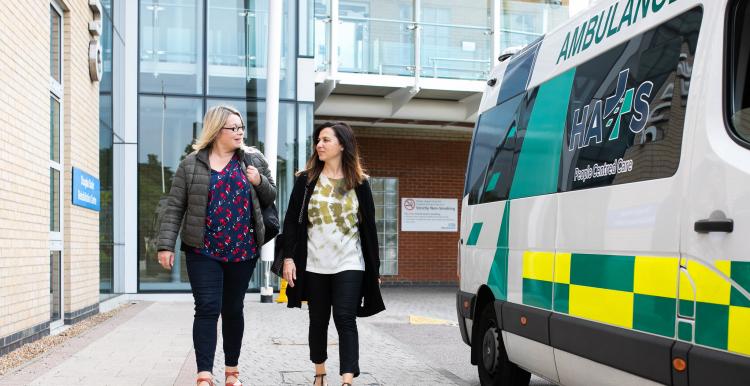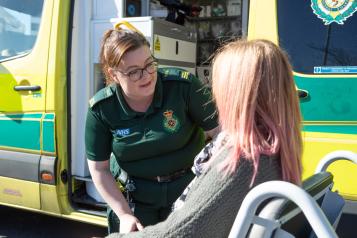Work is needed to reduce pressure on urgent and emergency care services across Lancashire and South Cumbria following CQC inspections

Integrated care systems (ICSs) are new partnerships between organisations involved in health and care across an area. Integrated care boards (ICBs) are being formed across the country to coordinate these partnerships to improve people’s health and are replacing clinical commissioning groups (CCGs).
These inspections were conducted to understand how services respond to the challenges they face as individual providers, but that require a co-ordinated response. They are also intended to support ICBs to better understand the journey people experience when seeking urgent care and identify where they can make improvements. To read more about this work visit the CQC website.
As part of this work, CQC carried out over 30 individual inspections across a range of health and social care services in the area covered by the Lancashire and South Cumbria integrated care system. This included urgent and emergency care and medical care services run by University Hospitals of Morecambe Bay NHS Foundation Trust and Lancashire Teaching Hospitals NHS Foundation Trust. Urgent and emergency care services was also inspected at East Lancashire Hospitals NHS Trust.
Inspections were also carried out at North West Ambulance Service NHS Trust including NHS 111 and 999, mental health teams employed by Lancashire and South Cumbria NHS Foundation Trust, some local GP surgeries and GP out of hours services and adult social care services.
At Blackpool Teaching Hospitals NHS Foundation Trust inspectors looked at urgent and emergency care services and medical care, a focused inspection of surgical services was also carried out to follow up on a warning notice issued last October. This was regarding it not appropriately assessing and managing risks to patients waiting to receive care and treatment or having appropriate systems and processes in place to ensure incidents were reported, reviewed and investigated appropriately so lessons were learnt.
Ann Ford, CQCs network director, said:
“During our inspections throughout Lancashire and South Cumbria, we found increasing demand on urgent care services. Although feedback was mostly positive about these services, some patients were attending urgent care instead of accessing their GP.
“Although work was being carried out with local communities to find out why this was happening, more needs to be done to deliver system-wide solutions to ensure people consistently receive high-quality, timely care and treatment in the right service.
“It was concerning that people calling 999 for an ambulance experienced significant delays, and once they arrived at hospital there were delays in relation to handovers from the ambulance crews to hospital although the length of delays varied from hospital to hospital. Delays meant that ambulance crews were experiencing difficulties in responding to other calls in a timely manner.
“We saw significant delays for people accessing care and treatment in emergency departments. There were delays in triage and initial treatment which put people at risk of harm. We also found delays with people being discharged from hospital which had an impact on patient flow across services in the area.
“Inspectors found mental health services delivered from emergency departments were well run and meeting people’s needs. This has improved since the previous inspection of these services in 2019. However, accessing mental health inpatient services remained a significant challenge in terms of local availability. This often resulted in people being cared for outside their local area.
“It’s important that local health and social care leaders work together to ease the pressure on staff and emergency services, so people receive timely care which is right for them.”
Across the system, inspectors found:
- The NHS111 service was experiencing significant staffing challenges.
- There were significant delays for people accessing care and treatment in emergency departments.
- Discharge wasn’t always well planned. This was impacted by capacity in social care services.
- People who called 999 for an ambulance experienced significant delays. Also, there were long handovers at emergency departments.


